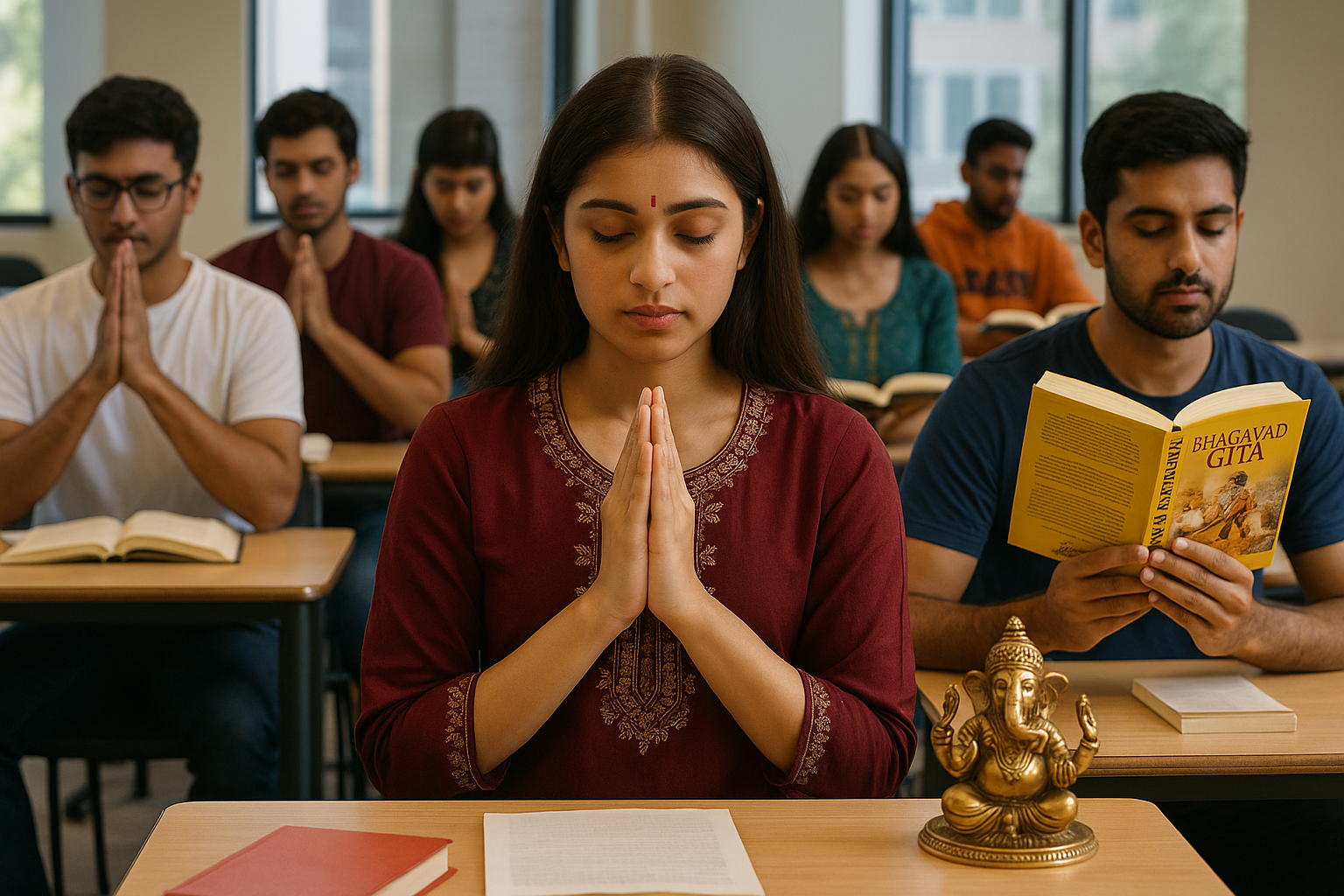
Across campuses in Melbourne, yoga studios in Dubai, and Instagram Reels from Toronto to Leicester, there’s a growing, undeniable trend: Gen Z South Asians living abroad are turning to Indian spiritual traditions, not out of obligation, but out of choice. And they’re doing it in a way that feels fresh, global, and deeply personal.
Post-pandemic anxiety gave Gen Z a crash course in mindfulness, and they’ve turned to Indian meditative practices like breathwork (pranayama), chanting, and even Sanskrit journaling to stay grounded. Climate anxiety, war trauma, and digital burnout have made Gen Z more spiritually curious, not necessarily religious. Platforms like YouTube, TikTok, and even Spotify playlists have made mantras, stories of Ramayana and Bhagavad Gita breakdowns more accessible and well, aesthetic.
When Dev Patel released Monkey Man, it wasn’t just a vigilante action film, it was a spiritual tribute to Hanuman. Patel, born and raised in the UK, said he grew up ignoring the stories of his heritage, but now sees them as “superhero blueprints that Marvel could never match.” The film is inspired by the Hindu deity Hanuman and the legend of his strength and courage, while also drawing inspiration from action movies that influenced Patel growing up. It is not uncommon for my 13 year old son who lives in Sydney and is surrounded by Greek, Italian, Lebanese, Chinese cultures to wear a Hanuman Pendant as a spiritual fashion statement around his neck, what is different though is he knows the story of Hanuman and the wars he fought for Lord Ram from his bed time stories and is proud to tell those stories when his friends ask about the pendant.
At RMIT and Monash University, student-run clubs like Roots & Raga host weekly mantra circles, where Tamil and Gujarati students lead chants from their own traditions. Attendance has doubled in 6 months.
In Brampton, 24-year-old influencer Meera Kapadia hosts a monthly chai & chakra night, where South Asian women discuss astrology, the Mahabharata, and everything in between. Her waitlist? 200+.
Boys who once rapped to Stormzy are now remixing Kabir’s poetry into spoken word at campus open mics. At least three schools have invited modern monks to talk about ahimsa, karma, and identity.
A youth-led group called Desert Dhyan leads sunrise meditations in the dunes, drawing Gen Z expats who balance high-speed city life with stillness. Their Instagram? Aesthetic. Minimal. Viral.
Kiwi-Indians are integrating sattvic food ideas into school canteen projects. Spirituality isn’t just being practiced—it’s being co-designed into school life.

What’s clear is this, Gen Z isn’t going “back” to religion. They’re going inward. And they're remixing centuries-old Indian wisdom into their daily lives, sometimes with a yoga class or a pendant and sometimes with iPads. They don’t see tradition as baggage. They see it as bandwidth. We’re witnessing a slow but seismic shift. Indian spirituality isn’t a temple-bound experience anymore. It’s at cafes, in college dorms, on yoga mats, and in music libraries. The diaspora’s youngest are not just preserving culture, they’re evolving it.
And at The Chaos Drop we tip our hats to parents, carers that are helping these young minds remain in touch with their cultures.